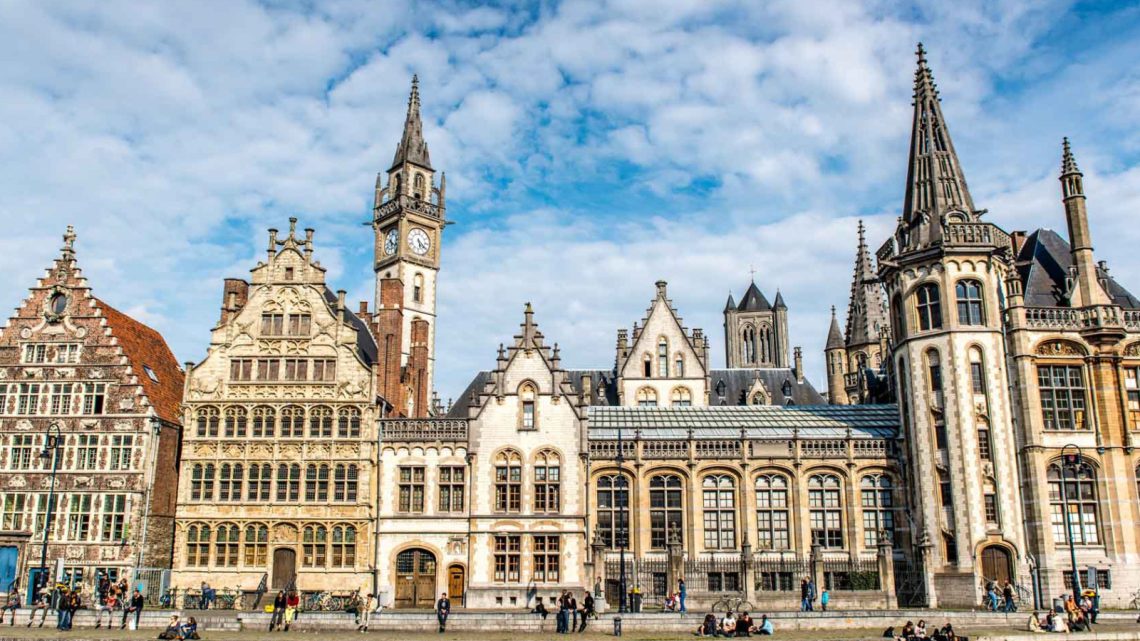
Exploring the Educational Landscape of Belgium and the Netherlands
The rich tapestry of traditions and expressions that define the region invites individuals to delve deeper into its vibrant essence. Understanding the nuances of communication and customs is essential for anyone wishing to immerse themselves fully in this remarkable environment. Engaging with such offerings opens up pathways to not only enhance one’s lexicon but also to appreciate the subtleties of local customs.
In this diverse setting, the various programs available cater to different interests and skill levels, ensuring that everyone can find an ideal match for their aspirations. Participants are encouraged to engage actively, fostering a meaningful connection with both the spoken word and the customs inherent to the locale. These educational experiences are designed to inspire creativity and personal growth while nurturing a profound appreciation for the region’s unique heritage.
By partaking in these thoughtful initiatives, individuals can forge new relationships and expand their horizons, all while gaining insights into the traditions that shape the everyday lives of those in the area. The journey into this world of expression and values promises to be as enriching as it is enlightening.
Language Learning Opportunities in Belgium
In this fascinating region of Europe, individuals can immerse themselves in diverse linguistic experiences. The rich tapestry of dialects and languages offers a wealth of opportunities for those seeking to broaden their linguistic skills. From formal instruction to informal practice, learners can engage in various activities that enhance their proficiency while appreciating the unique cultural backgrounds.
|
Program Type |
Description |
Key Features |
|---|---|---|
|
Formal Education |
Structured courses offered by educational institutions. |
Certifications, experienced instructors, diverse syllabi. |
|
Language Exchanges |
Opportunities to practice speaking with native speakers. |
Informal settings, social interaction, community-building. |
|
Online Resources |
Access to digital platforms for self-paced learning. |
Interactive tools, flexibility, vast content. |
|
Cultural Workshops |
Sessions that blend language learning with cultural activities. |
Real-world context, hands-on experiences, culinary classes. |
Enthusiasts can benefit from a variety of methods to refine their communication abilities while forging connections within the community. Whether through structured environments or social gatherings, there is a myriad of avenues available to enhance one’s linguistic journey.
Cultural Workshops in the Netherlands
These engaging sessions provide an opportunity for participants to immerse themselves in unique traditions and practices. By participating in hands-on activities, individuals can gain insights into the rich heritage and social customs of the region, while also developing new skills and knowledge.
Culinary Experiences
One popular form of these gatherings involves culinary arts, where attendees can learn to prepare traditional dishes. From creating authentic pastries to mastering local specialties, these workshops not only teach cooking techniques but also highlight the historical significance of each recipe, fostering a deeper appreciation for the vibrant gastronomy.
Another aspect includes artistic workshops that delve into various crafts such as painting, pottery, and textile arts. Guided by seasoned artisans, participants can explore their creativity while discovering the cultural narratives behind each art form. This not only enhances artistic skills but also promotes a connection to the historical context of local artistic movements.
Comparative Analysis of Language Courses
This section delves into the various aspects that differentiate educational programs focusing on linguistic skills and cultural understanding. The examination covers several critical factors that play a pivotal role in shaping the effectiveness and appeal of these curricula.
-
Curriculum Structure:
-
Some institutions emphasize immersive learning experiences.
-
Others prioritize grammar and vocabulary acquisition.
-
Hybrid programs blend traditional and contemporary teaching methods.
-
Teaching Methodologies:
-
Communicative approach encourages interaction among students.
-
Grammar-translation method focuses on rules and translations.
-
Task-based learning promotes real-world application of skills.
-
Class Size:
-
Small groups facilitate personalized attention.
-
Large classes may provide diverse interaction opportunities.
-
Instructor Qualifications:
-
Native speakers bring authenticity to pronunciation and usage.
-
Qualified educators often provide structured guidance and feedback.
-
Extracurricular Activities:
-
Workshops and cultural events enhance practical understanding.
-
Social gatherings foster language usage in informal settings.
By analyzing these elements, potential students can make informed decisions that align with their goals and preferences in pursuing linguistic advancements.
Unique Cultural Events Across Regions
Each region boasts a rich tapestry of vibrant celebrations that reflect its diverse heritage and traditions. These distinct happenings provide a window into the local customs, artistry, and communal spirit, allowing participants to immerse themselves in a captivating cultural experience.
Festivals play a pivotal role in connecting individuals with their roots and fostering community bonds. In various locales, one can witness colorful processions, live music performances, and delicious culinary showcases. Each event is a testament to the unique identity of the area, highlighting the significance of shared stories and traditions.
Moreover, cultural exhibitions and fairs often feature traditional crafts, folklore, and interactive activities, inviting attendees to engage with the history and creativity that define the region. By attending these events, individuals not only enjoy the festivities but also gain insights into the values and narratives that shape the community.
Benefits of Bilingualism in Europe
Being proficient in two or more tongues brings a wealth of advantages, particularly in the diverse landscape of Europe. As cultures intertwine and societies evolve, the importance of mastering multiple dialects becomes evident. From personal growth to economic opportunities, the positive effects of bilingualism extend far beyond mere communication.
Cognitive Advantages
Studies have shown that bilingual individuals often exhibit enhanced cognitive abilities. The brain’s capacity to switch between different languages encourages mental flexibility and improves problem-solving skills. Furthermore, bilingualism is linked to better memory retention and a delay in the onset of age-related cognitive decline, making it a valuable asset throughout one’s life.
Social and Economic Opportunities
Fluency in multiple languages provides significant social benefits, enabling individuals to connect with a broader range of people and cultures. This not only fosters empathy and understanding but also enhances one’s employability. In today’s globalized economy, companies increasingly seek multilingual candidates who can navigate diverse markets and communicate effectively with clients from various backgrounds.
Community Engagement through Language Exchange
Participation in mutual linguistic activities fosters connections between individuals from different backgrounds. By engaging with one another, participants not only enhance their communicative skills but also cultivate an understanding of diverse traditions and customs.
Such interactions create a vibrant atmosphere where individuals can:
-
Share their unique perspectives and experiences
-
Develop friendships that transcend cultural boundaries
-
Encourage empathy and appreciation for different heritages
Moreover, these exchanges can take various forms, including:
-
Informal meetups in local cafés or community centers
-
Structured group sessions focused on specific themes or topics
-
Online platforms facilitating cross-cultural dialogues
Engagement through reciprocal learning not only enriches participants’ lives but also strengthens the social fabric of the community, making it a more inclusive and harmonious place.
Questions and answers: Belgium Netherlands classes
What types of language classes are offered in Belgium and the Netherlands for newcomers?
In Belgium and the Netherlands, newcomers can find a variety of language classes tailored to different needs. Language schools and community centers often offer beginner, intermediate, and advanced courses in Dutch, French, and Flemish. Many programs also focus on conversational skills, cultural integration, and specialized vocabulary for professions. Online platforms have also emerged, providing flexibility for learning, often including immersive experiences that combine language with cultural activities.
How can I benefit from cultural classes while learning the language?
Cultural classes complement language learning by providing context and practical applications of what you’re learning. They often include cooking classes, traditional arts and crafts workshops, and history lectures, all in the target language. This immersion helps students understand social norms, idiomatic expressions, and cultural references, making the language more relatable and easier to grasp. Additionally, cultural classes can enhance networking opportunities and foster deeper connections with the local community.
Are there any specific resources or websites to help find language and culture classes in Belgium and the Netherlands?
Yes, there are several resources available for finding language and culture classes in Belgium and the Netherlands. Websites like Meetup, Eventbrite, and local community centers often list various classes and events. Additionally, educational institutions like universities and language schools frequently provide details about their courses online. Social media platforms and expat forums are also excellent places to connect with others who can share recommendations and experiences regarding language and cultural programs.
What is the typical duration and structure of language courses in these countries?
Language courses in Belgium and the Netherlands vary widely in duration and structure. Many standard courses range from 8 to 16 weeks, meeting once or twice a week for a couple of hours. Intensive courses can condense the material into shorter periods, such as four to six weeks. Classes generally combine grammar lessons, vocabulary building, and conversation practice, often incorporating cultural aspects to make learning more holistic. Some institutions may offer a modular approach, allowing students to focus on specific skills like speaking or writing.
What should I consider when choosing a language school in Belgium or the Netherlands?
When selecting a language school, consider factors such as accreditation, class size, and the expertise of instructors. Look for schools with a good reputation and positive reviews from former students. It’s also essential to assess the teaching methods used—some schools may focus on immersive practices, while others may emphasize traditional grammar and vocabulary drills. Additionally, inquire about the availability of cultural programs, as they can enhance your overall learning experience. Finally, consider logistical aspects, such as location, scheduling flexibility, and costs, to ensure the school meets your personal needs.
What are the best Dutch language courses in Belgium for non-native speakers?
Belgium offers various Dutch language courses for non-native speakers, particularly in regions like Flanders, Antwerp, Ghent, and Brussels. Schools like the CVO (Centrum voor Volwassenenonderwijs) offer Dutch as a second language (NT2) classes. You can also find online language courses and private Dutch lessons. Universities like Vrije Universiteit and other language centers also provide adult education programs for learning Dutch.
Where can I find Dutch language schools in Belgium that offer online classes?
Many Dutch language schools in Belgium, including Huis van het Nederlands, offer online classes for learners. You can also find language programs from CVO or private Dutch tutors who provide flexible online courses. These options allow you to learn Dutch from anywhere, whether you are in Flanders or Wallonia.
What is the typical language proficiency level required for Dutch courses in Belgium?
Dutch courses in Belgium are designed for various proficiency levels, ranging from beginner to advanced. Before enrolling, you may need to take a Dutch language proficiency test to determine your level of Dutch. Schools like the CVO and Huis van het Nederlands organize classes based on your language skills, ensuring you find the right course for your current ability.
How can I improve my Dutch language skills quickly while living in Belgium?
To learn Dutch quickly while living in Belgium, immersion is key. Attending Dutch language courses in Antwerp, Ghent, or Brussels can significantly improve your speaking skills. You can also participate in language lessons through CVO, Huis van het Nederlands, or take private Dutch classes. Speaking Dutch with locals and attending Dutch-speaking events are great ways to enhance language proficiency.
Are there any visa requirements to study Dutch language courses in Belgium?
If you’re moving to Belgium to study Dutch, you may need to apply for a student visa, depending on your nationality. Some Dutch language schools in Belgium, like universities and accredited institutions, can assist with visa applications. The fees may vary, and it’s essential to check the specific requirements based on the language program you choose.








